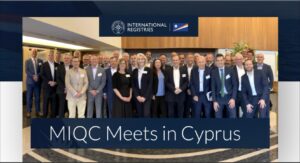
In a landmark ruling, the Court of Justice of the European Union (CJEU) has clarified the position of third-country economic operators—those outside the EU and lacking specific trade agreements—regarding participation and equal treatment in EU public procurement. The Kolin Inşaat Turizm Sanayi ve Ticaret decision (Case C-652/22, EU:C:2024:910) outlines significant restrictions on the rights of these operators to challenge procurement awards, marking a practical setback for claims of non-discrimination in EU tenders.
Key Background on the Decision
The issue arose when Kolin Inşaat, a Turkish firm, participated in an EU procurement procedure governed by Directive 2014/25, which applies to procurement within utility sectors and includes clauses under which third-country operators can be excluded or limited based on the presence (or absence) of trade agreements. Specifically, Article 43 of this Directive provides access to public procurement only to economic operators from countries with an international agreement with the EU, such as the WTO Government Procurement Agreement (GPA) or a relevant Free Trade Agreement (FTA). Turkey, however, does not have such an agreement covering public procurement with the EU. The court’s interpretation underscored that, although EU law does not outright exclude operators from such third countries, it does not extend equal treatment rights to them either.
Ruling Highlights: limited rights for non-EU economic operators
The CJEU’s ruling reinforced that, in the absence of an EU trade agreement, third-country operators do not have the right to demand equal treatment under EU procurement law. While they may be allowed to participate in specific tenders, they cannot invoke rights to non-discriminatory treatment guaranteed by Directive 2014/25 for EU operators or those from countries covered by applicable agreements.
1. Non-Application of Equal Treatment: The CJEU clarified that third-country economic operators lacking an EU international agreement cannot rely on the EU’s procurement directives for protection from discriminatory practices. Thus, they have no basis to challenge awards on the grounds of equal treatment if their tender is disadvantaged.
2. Directive limitations: Article 45(1) of Directive 2014/25 entitles “any interested economic operator” to submit tenders; however, this right does not equate to equal treatment in the case of third-country operators not covered by agreements. The court indicated that granting equal treatment in such cases would conflict with the principles set in Article 43 of Directive 2014/25, which reserves these benefits for signatories of relevant EU agreements.
3. Practical implications for Third-Country bidders: The ruling effectively restricts third-country bidders from challenging procurement decisions based on EU directives if they lack treaty-based rights. This could deter participation by such operators, given the absence of recourse in cases of potential bias.
Conclusion: A pragmatic limitation for Non-EU Bidders
The Kolin Inşaat decision underscores the boundaries of EU procurement rules and reinforces the significance of trade agreements in ensuring access and rights for non-EU companies. Without such agreements, third-country operators face significant limitations, both in terms of participation rights and legal recourse. This decision highlights the critical need for understanding treaty-based rights and the limitations inherent in EU procurement law for third-country operators.
For more information, please contact Katia Kakoulli or your usual contact at Chrysses Demetriades & Co LLC.















